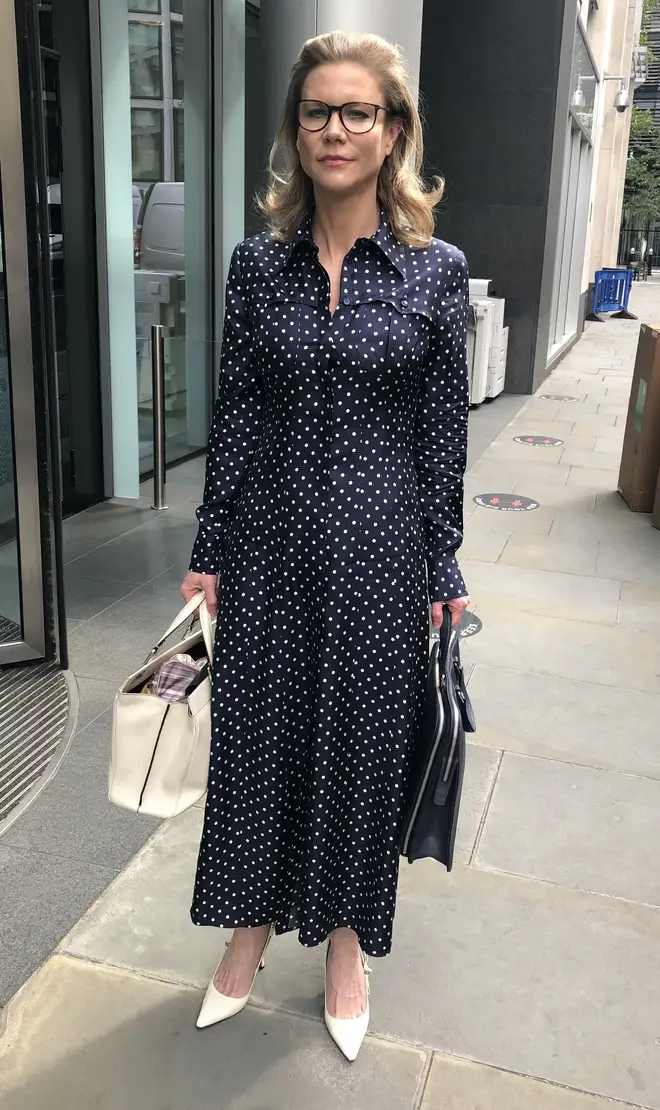
Ian Payne 4am - 7am
26 February 2021, 16:24

A judge on Friday ruled that Barclays had been guilty of ‘serious deceit’ but concluded that Amanda Staveley had not established loss.
A businesswoman who sued Barclays for hundreds of millions of pounds says she has been vindicated despite losing a High Court battle.
Amanda Staveley, 47, who made complaints about the behaviour of bosses at the bank when negotiating investment deals during the 2008 financial crisis, says she is considering asking the Court of Appeal to consider the case.
She said PCP Capital Partners, a private equity firm she runs, would have invested in the bank on “vastly better terms” 13 years ago but for Barclays’ “false representations”.
Barclays contested the claim.
A judge on Friday ruled that Barclays, which wanted to avoid going into Government ownership, had been guilty of “serious deceit” and concluded that Roger Jenkins, a Barclays boss in 2008, had knowingly made false representations.
But Mr Justice Waksman, who heard evidence at a trial during the summer of 2020, dismissed Ms Staveley’s claim after deciding that she had not established “loss”.
He said he understood why the outcome would be a “serious disappointment” for PCP.

Lawyers representing Barclays had argued that Ms Staveley was “thoroughly unreliable” and guilty of “obvious embellishment and invention”.
But the judge disagreed and said “for the most part” her evidence was “reliable”.
“In spite of Barclays’ efforts to question my character and credentials, the court has recognised my abilities as a businesswoman and the truth of my account of events,” she said, after the ruling.
“The judgment confirms what I have said from the outset and repeated in my evidence, a senior executive at Barclays repeatedly lied to me when seeking private investment in the bank during the 2008 financial crisis.”
She added: “I will be taking advice on appealing (against) the judge’s decision not to award damages.”
Lawyer Richard East, who represented Ms Staveley and is based at law firm Quinn Emanuel, described the outcome as “surprising” and said: “It is disappointing that, despite the judge finding that Ms Staveley was a tough, persistent, clever and able negotiator, he found ultimately that she could not have completed the deal which she had put in place and hence no loss was suffered.”
Barclays said bosses welcomed the judge’s decision to “dismiss PCP’s claim in its entirety” and award no damages.
Legal bills are thought to run into millions of pounds.
The judge is expected to make decisions who should pay what after a further hearing.
Ms Staveley said bank bosses agreed to provide an unsecured £2 billion loan to Qatari investors, but alleged that the loan was “concealed” from the market, shareholders and PCP Capital Partners.
She said PCP was induced to invest on “manifestly worse terms” than Qatari investors.
Former Barclays chief executive John Varley had told the judge how he had wanted to avoid the bank going into Government ownership during the 2008 financial crisis.
Mr Varley, group chief executive from late 2004 to late 2010, said Government ownership would have damaged the interests of shareholders.
Lawyers representing PCP told the judge that an initial damages claim was for a sum between £1.6 billion and £400 million.
By the end of the trial PCP was arguing for amounts ranging between around £830 million and around £600 million.